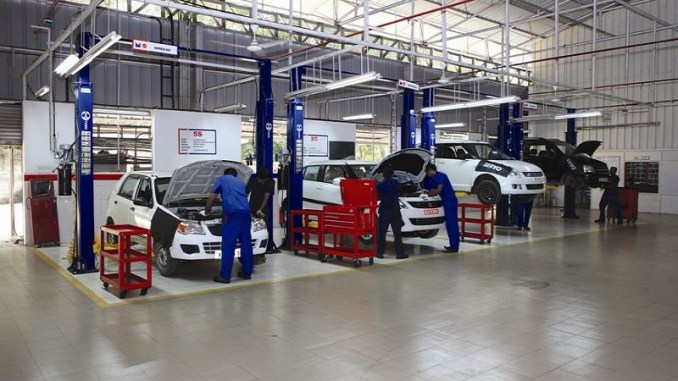Featured
Your car's brakes are just one of the most crucial parts in ensuring your safety and the security of others when driving. Routine brake inspections are vital to keeping ideal braking performance and preventing pricey repairs. Whether you're an experienced auto owner or a new driver, recognizing brake assessment standards can assist you stay proactive about maintenance and guarantee your car is always roadworthy.
- Why Brake Inspections Matter. The more you drive, the more rubbing your brake pads endure, at some point leading to lowered braking performance. Without appropriate inspection, it's hard to evaluate when your brakes could be in demand of repair.
A well-kept brake system makes certain quick, receptive quiting power, specifically in emergencies. It likewise helps extend the life of your lorry, as overlooking brake upkeep can result in a lot more serious, costly problems later.
- Indications You Need a Brake Evaluation. While it's vital to have your brakes checked occasionally, particular indicators might show that they need interest. Watch (and ear) out for these caution signals:
Squeaking or Grinding Sounds: Uncommon audios, specifically a high-pitched squeal or grinding sound, typically imply that your brake pads are put on down. Resonance or Pulsation: If you feel vibrations or a pulsing feeling when pushing the brake pedal, maybe an indication of deformed blades or uneven brake pad wear. Lowered Brake Responsiveness: If your brakes really feel less receptive or you have to push the pedal harder to reduce, it may show air in the brake lines or reduced brake fluid. Drawing away: If your automobile pulls away when braking, it can mean irregular brake pad wear or a brake fluid leak. Dashboard Caution Lights: Some cars and trucks have brake-related warning lights that suggest issues like reduced brake fluid or worn brake parts. If you discover any one of these signs, it's essential to have an expert mechanic execute a brake assessment as quickly as feasible.

- What Happens Throughout a Brake Examination? During a brake assessment, an auto mechanic will certainly inspect several vital elements of the stopping system to make sure every little thing remains in working order. Here's what you can expect throughout the process:
Brake Pads and Shoes: The auto mechanic will certainly check the thickness of the brake pads or shoes. If they're also thin, they'll need to be replaced. Brake Rotors: Rotors are the discs that the brake pads press against to reduce your automobile down. They'll be examined for any type of indicators of wear, racking up, or bending. Brake Fluid: Low or polluted brake fluid can hinder braking performance. The professional will inspect the fluid degree and top quality and top it up or purge it if essential. Brake Lines and Hose pipes: Brake lines carry fluid from the master cylinder to the brakes. The mechanic will look for any leakages, cracks, or damage to guarantee correct fluid circulation. Brake Calipers and Wheel Cyndrical Tubes: Calipers and wheel cyndrical tubes push the brake pads versus the rotors or drums. The professional will certainly look for wear, leakages, and appropriate operation. 4. Exactly how Frequently Should You Have Your Brakes Examined? The regularity of brake assessments depends upon factors like your driving routines, the type of lorry you drive, and the environment in which you drive. As a general guideline, it's an excellent concept to have your brakes examined every 12,000 miles or annually. However, if you experience any of the indication pointed out earlier, it is necessary to get your brakes checked immediately.
For those who frequently drive in rush hour, mountainous surface, or harsh weather condition problems, more constant evaluations may be essential.
- Relevance of Timely Brake Repair Works. When you discover a trouble with your brakes, it's vital to resolve it right away. Postponing brake repair work can lead to more significant damages to your braking system, leading to greater repair service prices. In extreme cases, disregarding brake problems can lead to complete brake failure, which is a severe security threat.
By remaining on top of brake upkeep and addressing issues quickly, you guarantee that your brakes continue to execute as planned, keeping you and your travelers secure on the road.
Verdict: Keep Your Brakes in Top Forming. Brake assessments are an easy yet vital component of vehicle upkeep. By recognizing the significance of normal examinations, knowing the indicators of brake problems, and remaining aggressive with repairs, you can guarantee your vehicle's stopping system stays in optimum condition.
Latest Posts
Take Advantage of Limited-Time Auto Repair Offers in Chicago at Montclare Auto Repair
Take Advantage of Special Auto Repair Deals in Chicago at Montclare Auto Repair
Explore Cost-Effective Auto Repairs with Montclare’s Exclusive Service Specials
More
Latest Posts
Take Advantage of Limited-Time Auto Repair Offers in Chicago at Montclare Auto Repair
Take Advantage of Special Auto Repair Deals in Chicago at Montclare Auto Repair
Explore Cost-Effective Auto Repairs with Montclare’s Exclusive Service Specials
